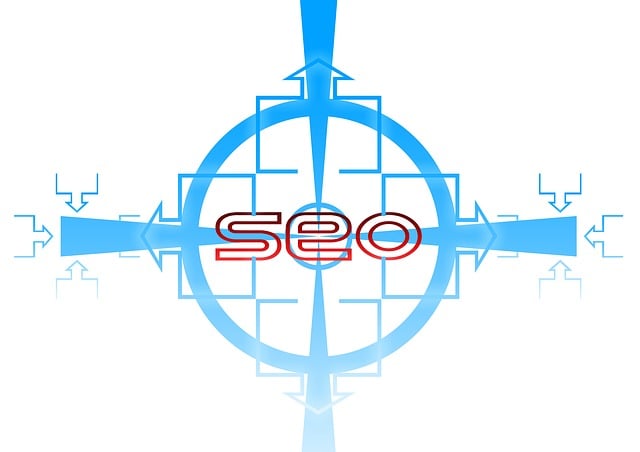Search Engine Optimization (SEO) is a strategic process that enhances online presence, drives organic traffic, and offers significant benefits. By optimizing content, technical aspects, and external links, businesses can improve search rankings and attract high-quality audiences. Key benefits include better user experience, increased engagement, established brand authority, longer visit durations, and lower bounce rates. Effective SEO strategies involve keyword targeting for user intent alignment, on-page optimization for users and search engines, backlink building through shareable content and collaborations, and prioritizing a seamless user journey. Measuring KPIs using tools like Google Analytics ensures SEO efforts maximize benefits such as web visibility, higher click-through rates, improved domain authority, longer user sessions, and potential customer conversions.
In today’s digital landscape, understanding and leveraging Search Engine Optimization (SEO) is paramount for any website aiming to thrive. This article delves into the multifaceted world of SEO, exploring its myriad benefits in driving organic traffic. From deciphering the intricacies of keyword research to mastering on-page optimization and building authoritative backlinks, each section unravels a crucial aspect of this strategy. By the end, you’ll grasp how to create a seamless user experience, measure success, and harness SEO’s true potential.
Understanding Search Engine Optimization (SEO): The Foundation of Organic Traffic Growth

Search Engine Optimization (SEO) is a powerful tool for any website aiming to boost its online visibility and attract organic traffic. At its core, SEO involves understanding how search engines crawl and index websites, and then strategically optimizing content, technical elements, and external links to improve search rankings. By implementing effective SEO practices, businesses can unlock the vast potential of organic reach.
The benefits of SEO are numerous. It helps search engines better understand the context and relevance of web pages, leading to higher quality and more targeted traffic. Well-optimized websites tend to have longer stay durations, lower bounce rates, and increased engagement metrics, all of which contribute to a positive user experience. Moreover, SEO fosters brand authority and trustworthiness over time as established websites consistently rank higher for relevant keywords.
Unlocking the Power of Keywords: Targeting the Right Audience with Relevant Content

In the realm of online visibility, Keywords are the unsung heroes of Search Engine Optimization (SEO). They serve as the bridge between searchers and your website, acting as powerful tools to attract the right audience. By strategically targeting specific keywords relevant to your niche, you unlock a myriad of benefits. This precise approach ensures that your content reaches those actively searching for what you offer, fostering a more engaged and qualified user base.
Relevant content is key to this process. Creating material that aligns with the search intent behind chosen keywords builds trust and credibility with search engines. When your content consistently answers the questions and addresses the needs of your target audience, search algorithms recognize your site as an authoritative source. This, in turn, boosts your website’s ranking, making it more visible and attracting increased organic traffic, a core goal of any successful SEO strategy.
On-Page SEO Tactics: Optimizing Your Website for Both Users and Search Engines

Optimizing your website for both users and search engines is a key component of on-page SEO tactics. This means creating content that is not only engaging and valuable but also structured in a way that makes it easy for search engine algorithms to understand and index. Implementing effective keywords, meta tags, and headers can significantly boost your site’s visibility and attract more organic traffic. User experience is another critical aspect; ensuring your website loads quickly, is mobile-friendly, and offers seamless navigation enhances both user satisfaction and search engine rankings.
By focusing on these on-page SEO strategies, you can harness the benefits of Search Engine Optimization (SEO), such as increased web visibility, higher click-through rates, and improved domain authority. These tactics not only draw in more visitors but also encourage them to explore your site further, leading to longer sessions and potentially converting them into loyal customers or subscribers.
Building High-Quality Backlinks: Strategies to Gain Authority and Trust in Your Niche

Building high-quality backlinks is a cornerstone of successful Search Engine Optimization (SEO) and offers significant benefits. These links act as votes of confidence from other reputable websites, signaling to search engines that your content is valuable and trustworthy. One effective strategy involves creating engaging, shareable content that naturally attracts links from relevant sites. Thought leadership pieces, such as in-depth guides or original research, are particularly appealing and can generate backlinks from industry influencers and prominent publications.
Collaborative efforts with influencers or other brands in your niche can also lead to valuable backlinks. Guest blogging on popular industry websites not only exposes your brand to a new audience but also provides an opportunity to earn a link back to your site. Additionally, participating in online forums and communities where your target audience hangs out can help establish your brand as an authority. By engaging in these discussions and providing insightful responses, you may gain backlinks through natural mentions or direct collaborations.
The Role of User Experience (UX) in SEO: Creating a Seamless and Engaging Journey

A seamless user experience (UX) is integral to achieving successful Search Engine Optimization (SEO). When users visit a website, they expect it to be intuitive, easy to navigate, and provide relevant content that answers their queries. A well-designed UX ensures that visitors can effortlessly find what they’re looking for, encouraging them to explore more of the site. This leads to reduced bounce rates and increased time spent on the page, which are key signals that search engines use to rank websites higher in search results. By prioritizing UX, you enhance the benefits of SEO by creating an environment where users not only find your website relevant but also enjoy their time there, fostering brand loyalty and improving overall performance.
A smooth user journey involves various elements such as fast loading times, mobile responsiveness, clear call-to-actions (CTAs), and well-structured content. Search engines like Google favor websites that offer a positive user experience, recognizing that these sites contribute to better search results for users. By investing in UX optimization, businesses can attract more organic traffic and improve their online visibility. Additionally, a UX-focused approach ensures that your website is not only optimized for search engines but also for real users, ultimately driving engagement, conversions, and long-term success.
Measuring and Analyzing SEO Success: Tools and Metrics to Track Progress and Make Informed Decisions

Measuring and analyzing SEO success is a crucial step in understanding the benefits of search engine optimization. It involves tracking key performance indicators (KPIs) to gauge progress and make data-driven decisions for future strategies. There are numerous tools available that can help you navigate this process, from Google Analytics to specialized SEO platforms. These tools provide insights into organic traffic, keyword rankings, click-through rates, bounce rates, and other essential metrics.
By regularly monitoring these metrics, marketers and business owners can identify what’s working and what needs improvement. For instance, a rise in organic traffic over time indicates effective SEO strategies, while low conversion rates might signal the need to optimize landing pages or improve overall user experience. This data-backed approach ensures that SEO efforts are aligned with the goals of the website and its target audience, maximizing the benefits of search engine optimization.
